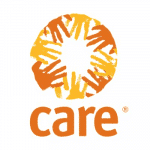CARE Zambia an International Non-Governmental relief and development organization with various projects in Central, Copperbelt, Eastern, Muchinga, Luapula, Lusaka, Northern, North-western, and Southern provinces of Zambia, has the following vacancy available at Chipata Field Office in Eastern Province.
Job Title: Technical Advisor – Safer Programs
Reports to: Program Director
Type of Contract: Fixed Term
Job Summary
CARE International is committed to preventing and responding to sexual harassment, exploitation, abuse, and child abuse. Incidents of abuse are a violation of human rights and undermine the integrity and reputation of CARE and other Humanitarian and Development actors.
The Nyenyezi project is one of a sample of CARE projects taking part in a pilot safeguarding initiative to develop, test, and implement safeguarding standards into projects and programs. The Technical Advisor – Safer Programs will work with the CARE USA safeguarding team and other safeguarding technical advisors to integrate safer program standards into the Nyenyezi project and other projects. Tools, resources, and training will be provided by the safeguarding team on how to take these tasks forward.
| Area of delivery |
Scope and expected outcomes |
| Collaborating with Senior Safeguarding Adviser and Regional Safeguarding Adviser to develop and pilot Safer Program tools and resources – 30%
|
- Conducting a project safeguarding audit of the Nyenyezi project to identify strengths, weaknesses, and opportunities in how safer program standards are currently embedded
- Developing a safeguarding action plan to ensure the safer programs pilot standards are implemented into the Nyenyezi project.
- Working with safeguarding staff to develop standardized tools and resources to enable safer programming.
- Testing tools and resources with project staff and program participants, reviewing and adapting to ensure they are fit for purpose.
- Reviewing and feeding back on the progress of embedding safer program standards into the Nyenyezi project.
- Contributing to the evaluation of Stage 1 of the Safer Programs Pilot.
|
| Integrating safeguarding tools and resources into the Nyenyezi project – 50%
|
- Collaborating – Working closely with Nyenyezi project staff to identify opportunities to embed safeguarding standards, tools, and resources.
- Resourcing – Ensuring proposals include actions and budget to prevent and respond to sexual exploitation and abuse, and child abuse.
- Risk Management – Completing safeguarding risk assessments in collaborating with staff and program participants. Including information on the national and local safeguarding risks, legal context, and patterns of harm and abuse, and identifying safeguarding risks associated with program implementation.
- Awareness Raising – Creating awareness raising materials and activities for safeguarding which have been designed in collaboration with affected populations to ensure messages are understood and culturally appropriate.
- Feedback and Accountability Mechanisms- Ensuring Feedback and Accountability mechanisms are in place and have been established in consultation with participants. Ensuring FAMS are safe, accessible, and appropriate for different groups of program participants.
- Survivor Support – Mapping survivor response services in each project location, so that survivors of abuse have access to functioning referral pathways for a comprehensive range of services (medical, psychosocial, legal etc.)
|
| Safeguarding due diligence and capacity building with partners – 10%
|
- Assessing partners capacity for safeguarding implementation and developing a capacity strengthening plan for those partners identified as having limited safeguarding capacity.
- Ensuring adequate safeguarding assessments area part of due diligence processes when considering new partnerships.
- Ensuring when engaging in partnerships, sub-grant or sub-recipient agreements, these agreements include reference to CAREs Safeguarding Policy, role and responsibilities for implementation and expressly state that the failure of those entities or individuals to take preventive measures against abuse shall constitute grounds to terminate such agreements.
- Review existing MoU and contracts between CARE Zambia (Nyenyezi Project) and partners and highlight gaps in safeguarding and PSHEA clauses for improvement.
|
| Capacity Building for staff – 10%
|
- Assess safeguarding training/capacity building for Nyenyezi program staff and partners
- Design and implement ongoing, targeted training and engagement to build capacity of project teams, including plans to ensure appropriate knowledge is sustained despite turnover and transitions.
|
Qualification, Experience and Competencies:
- 5 years program implementation experience.
- 2 years’ experience in safeguarding/ PSHEA or protection.
- Competent in facilitating training and awareness raising with staff and communities.
- Experience working directly with vulnerable groups
- Able to communicate with impact
- Analytical and Strategic
- Strong relationship-building skills
- Demonstrated experience working directly with local communities
Contacts/Key Relationships
- This role is expected to establish and maintain open, professional, and cordial relations with the COs internal and external customers. These include and not limited to.
Internal
- Key internal collaboration includes CARE USA safeguarding team, M & E team, project managers, technical leads, sector directors, Emergency Coordinator and the PSHEA Focal Point.
External
- Current donor, other INGOs similar to Care, Local NGOs/CSOs, private sector, communities, and Government line ministries, Departments and Agencies.
Suitably qualified and interested members of the public are invited to apply. Application letters accompanied by detailed CVs and daytime contact numbers should be sent to: [email protected].
Closing Date: 10th November 2022
CARE is an Equal Opportunity Employer promoting gender, equity, and diversity. Female candidates are strongly encouraged to apply.


